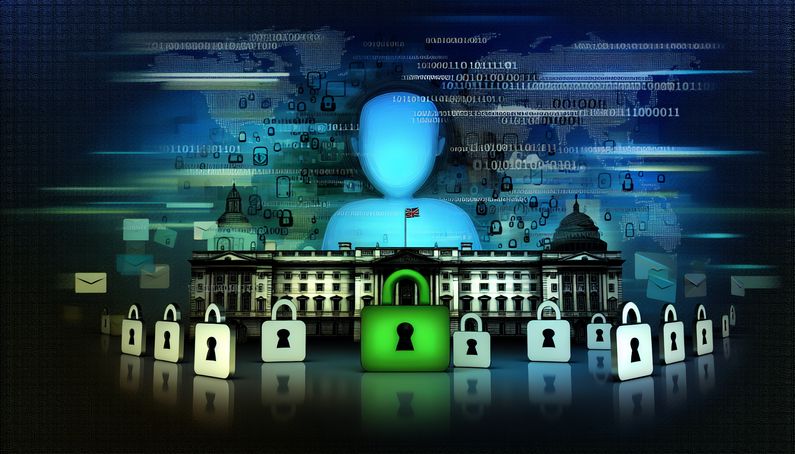
U.S. House Bans WhatsApp: Security Concerns and Safer Alternatives
The U.S. House of Representatives has taken a decisive step by banning WhatsApp from staff devices, citing significant security concerns. This move is largely driven by issues related to data privacy and encryption practices. WhatsApp, a popular messaging platform owned by Meta Platforms, has been classified as “high-risk” due to its lack of transparency in data protection measures and the introduction of targeted ads using sensitive user data (The Verge). The platform’s end-to-end encryption, while often praised, has been scrutinized for vulnerabilities in message storage and handling, raising alarms about potential security breaches (USA Today).
The decision also highlights the broader cybersecurity landscape, where hacking incidents have become increasingly sophisticated. Recent assessments by the Office of Cybersecurity identified vulnerabilities in WhatsApp that could be exploited by hackers, further justifying the ban (The Tech Portal). This action reflects a growing trend among governments to ensure that communication platforms meet stringent security and privacy standards.
Security Concerns and Alternatives
Data Privacy and Encryption Issues
The decision by the U.S. House of Representatives to ban WhatsApp from staff devices is primarily driven by concerns over data privacy and encryption practices. According to a report by The Verge, the Chief Administrative Officer (CAO) has classified WhatsApp as a “high-risk” communication platform due to its lack of transparency in data protection measures. The platform’s recent introduction of ads and promoted content in the Updates tab has further exacerbated these concerns. This change involves using users’ location, language, and interaction behavior to serve targeted ads, raising significant privacy issues (Bleeping Computer).
WhatsApp’s end-to-end encryption is often touted as a security feature, but the U.S. House’s cybersecurity office has pointed out vulnerabilities in how messages are stored and handled. The absence of stored data encryption and potential security risks associated with its use have been highlighted as major concerns (USA Today).
Vulnerabilities to Hacking
The potential for hacking is another critical factor in the decision to ban WhatsApp. The platform’s vulnerability to certain types of cyber-attacks, including those that exploit stored message vulnerabilities, has been a significant concern. According to The Tech Portal, the Office of Cybersecurity conducted an internal assessment that identified these vulnerabilities, leading to the app being deemed a high-risk platform.
In recent years, there have been several high-profile incidents where messaging apps have been targeted by hackers. For instance, Chinese hackers have breached U.S. local governments using zero-day vulnerabilities, highlighting the risks associated with using platforms that may not have robust security measures in place (Bleeping Computer).
Lack of Transparency and Accountability
The lack of transparency in how WhatsApp protects user data has been a recurring theme in the discussions surrounding its ban. The platform’s parent company, Meta Platforms, has faced criticism for not providing sufficient information about its data handling practices. This lack of accountability has raised alarms among cybersecurity experts and lawmakers alike (Social Media Today).
Moreover, the absence of clear communication from Meta regarding how it addresses potential security vulnerabilities has further fueled concerns. The U.S. House’s decision reflects a broader push to restrict technology platforms that do not meet stringent security and privacy standards (The Hill).
Recommended Alternatives
In response to the ban, the U.S. House has recommended several alternative messaging platforms that are considered more secure. These include Microsoft Corp’s Teams platform, Amazon.com’s Wickr, Signal, and Apple’s iMessage and FaceTime. Each of these platforms offers distinct security features that address the concerns raised by WhatsApp’s use.
-
Microsoft Teams: Known for its integration with other Microsoft services, Teams offers robust security features, including data encryption and advanced threat protection. It is widely used in corporate and government settings for secure communication (USA Today).
-
Amazon Wickr: This platform provides end-to-end encryption and secure file sharing, making it a popular choice for organizations that prioritize data security. Wickr also offers features like message expiration and screenshot detection to enhance privacy (The Verge).
-
Signal: Often lauded for its strong privacy features, Signal uses end-to-end encryption and does not collect user metadata. It has been recommended by security experts and privacy advocates as a secure alternative to WhatsApp (The Tech Portal).
-
Apple iMessage and FaceTime: These platforms are known for their strong encryption and privacy features. Apple has consistently emphasized user privacy, making its messaging services a preferred choice for secure communication (Arise News).
Broader Implications for Technology Platforms
The ban on WhatsApp is part of a broader effort by the U.S. House to scrutinize and regulate technology platforms that may pose security risks. This move aligns with global trends where governments are increasingly taking steps to ensure that digital communication tools meet high security and privacy standards.
The decision also highlights the growing importance of cybersecurity in government operations. As cyber threats become more sophisticated, there is a pressing need for government agencies to adopt secure communication platforms that can protect sensitive data and prevent unauthorized access (Bloomberg).
In conclusion, the U.S. House’s ban on WhatsApp underscores the critical need for secure communication platforms in government settings. By recommending alternatives with robust security features, the House aims to mitigate the risks associated with using potentially vulnerable apps. This decision reflects a broader commitment to safeguarding sensitive information and ensuring the integrity of government communications.
Final Thoughts
The ban on WhatsApp by the U.S. House underscores the critical importance of secure communication platforms in government operations. By recommending alternatives like Microsoft Teams, Amazon Wickr, Signal, and Apple’s iMessage, the House aims to mitigate risks associated with potentially vulnerable apps. This decision is part of a broader effort to scrutinize technology platforms that may pose security risks, aligning with global trends towards enhanced cybersecurity measures (Bloomberg). As cyber threats evolve, the need for robust security protocols becomes ever more pressing, ensuring the protection of sensitive government data and communications.
References
- The Verge. (2025). US House bans WhatsApp on staff devices over security concerns. https://www.theverge.com
- Bleeping Computer. (2025). US House bans WhatsApp on staff devices over security concerns. https://www.bleepingcomputer.com/news/security/us-house-bans-whatsapp-on-staff-devices-over-security-concerns/
- USA Today. (2025). WhatsApp banned by US House of Representatives. https://www.usatoday.com/story/news/politics/2025/06/23/whatsapp-banned-us-house-of-representatives/84325357007/
- The Tech Portal. (2025). US House bans WhatsApp on official devices citing stored message vulnerabilities. https://thetechportal.com/2025/06/24/us-house-bans-whatsapp-on-official-devices-citing-stored-message-vulnerabilities-report/
- Social Media Today. (2025). WhatsApp banned on US House staff devices over security concerns. https://www.socialmediatoday.com/news/whatsapp-banned-us-house-staff-devices-security-concerns/751431/
- The Hill. (2025). WhatsApp banned for congressional staffers. https://www.thehill.com/policy/technology/5365017-whatsapp-banned-congressional-staffers/
- Arise News. (2025). US House of Representatives bans WhatsApp on official devices. https://www.arise.tv/us-house-of-representatives-bans-whatsapp-on-official-devices-internal-memo-reveals/
- Bloomberg. (2025). US House bans WhatsApp from staffers’ government-issued devices. https://www.bloomberg.com/news/articles/2025-06-23/us-house-bans-whatsapp-from-staffers-government-issued-devices



